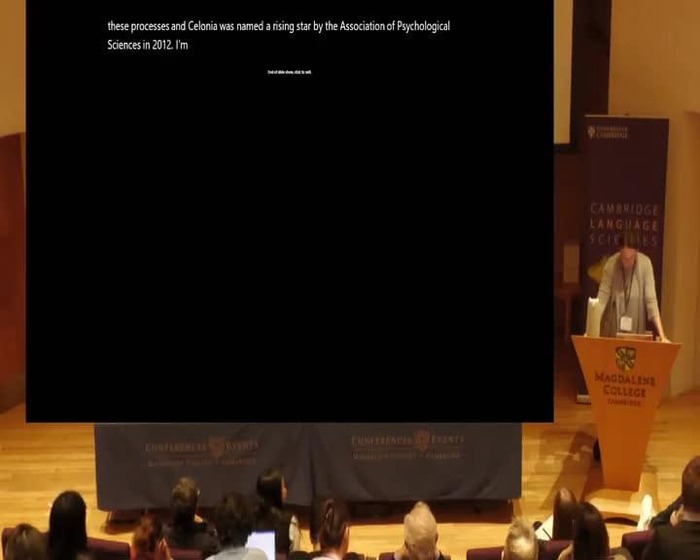Abstract
Struggling readers typically report enjoying reading less, establishing a vicious cycle that limits their opportunities to build word knowledge. Why does this happen, and can this cycle be broken? In this talk, I'll show how reading and language learning tasks can evoke a sense of intrinsic reward, activating reward-processing systems in the brain. This experience of intrinsic reward fuels memory for words. Interestingly, the strongest readers show the most pronounced intrinsic reward responses, suggesting that effort impacts perceived reward. Based on these results, I propose that the intrinsic reward in language learning comes from successfully predicting upcoming information—where confidence in one's learning serves as a powerful reinforcer, even without external feedback. I’ll also explore how gamified extrinsic rewards, such as points or social feedback, could enhance learning, tying our findings to efforts to gamify education.
Video




